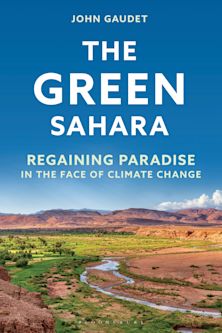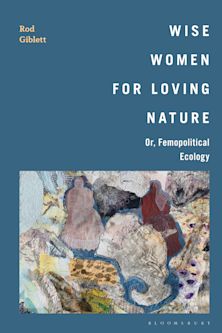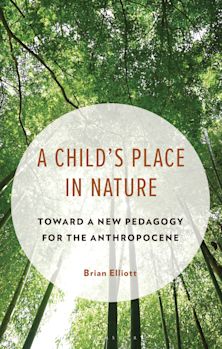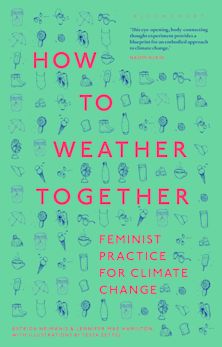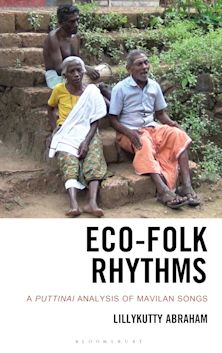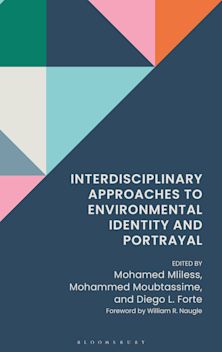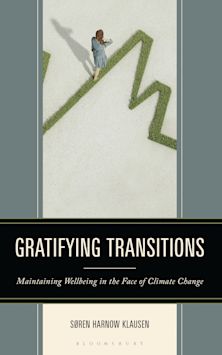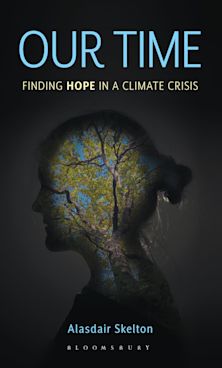- Home
- ACADEMIC
- Environmental Studies
- Contesting Extinctions
Contesting Extinctions
Decolonial and Regenerative Futures
Suzanne M. McCullagh (Anthology Editor) , Luis I. Prádanos (Anthology Editor) , Ilaria Tabusso Marcyan (Anthology Editor) , Catherine Wagner (Anthology Editor) , Alex Benson (Contributor) , Leonardo E. Figueroa Helland (Contributor) , Ryan Heryford (Contributor) , Wesley Y. Leonard (Contributor) , Felix Mantz (Contributor) , Ilaria Tabusso Marcyan (Contributor) , Suzanne M. McCullagh (Contributor) , Marjolein Oele (Contributor) , Lisa Ottum (Contributor) , Abigail Perez Aguilera (Contributor) , Luis I. Prádanos (Contributor) , Catherine Wagner (Contributor)
Contesting Extinctions
Decolonial and Regenerative Futures
Suzanne M. McCullagh (Anthology Editor) , Luis I. Prádanos (Anthology Editor) , Ilaria Tabusso Marcyan (Anthology Editor) , Catherine Wagner (Anthology Editor) , Alex Benson (Contributor) , Leonardo E. Figueroa Helland (Contributor) , Ryan Heryford (Contributor) , Wesley Y. Leonard (Contributor) , Felix Mantz (Contributor) , Ilaria Tabusso Marcyan (Contributor) , Suzanne M. McCullagh (Contributor) , Marjolein Oele (Contributor) , Lisa Ottum (Contributor) , Abigail Perez Aguilera (Contributor) , Luis I. Prádanos (Contributor) , Catherine Wagner (Contributor)
This product is usually dispatched within 1 week
- Delivery and returns info
-
Free CA delivery on orders $40 or over
You must sign in to add this item to your wishlist. Please sign in or create an account
Description
Contesting Extinctions: Decolonial and Regenerative Futures critically interrogates the discursive framing of extinctions and how they relate to the systems that bring about biocultural loss. The chapters in this multidisciplinary volume examine approaches to ecological and social extinction and resurgence from a variety of fields, including environmental studies, literary studies, political science, and philosophy. Grounding their scholarship in decolonial, Indigenous, and counter-hegemonic frameworks, the contributors advocate for shifting the discursive focus from ruin to regeneration.
Table of Contents
Chapter Two: “The Word for Bringing Bodies Back from Water:” Black Oceanic Ecopoetics and the Re-Imagining of Extinction
Chapter Three: Philosophizing Extinction: On the Loss of World, and the Possibility of Rebirth through Languages of the Sea
Chapter Four: What We Talk About When We Talk About Extinction
Chapter Five: Rat-Fall: Time and Taxa in the Colorado River Delta, c. 1900
Chapter Six: Contesting Extinction through a Praxis of Language Reclamation
Product details
| Published | Nov 08 2021 |
|---|---|
| Format | Hardback |
| Edition | 1st |
| Extent | 184 |
| ISBN | 9781793652812 |
| Imprint | Lexington Books |
| Illustrations | 6 b/w illustrations |
| Dimensions | 227 x 163 mm |
| Series | Environment and Society |
| Publisher | Bloomsbury Publishing |
About the contributors
Reviews
-
This dynamic book is an exciting and timely contribution to urgent conversations in the environmental humanities and postcolonial and ethnic studies about extinction. Rather than consider extinction as a singular or future event, this interdisciplinary collection explores temporally expansive settler-colonial extinctions in the plural. Foregrounding Indigenous, Black, and decolonial responses, the contributors trace a praxis of contestation to capital's eradicating drive that is rooted in critical relationality.
Carolyn Fornoff, University of Illinois Urbana–Champaign
-
This volume is a crucial addition to the growing field of extinction studies. The editors and contributors elucidate how contesting extinction means careful attention to both loss and revitalization: It means finding new ways to write about animals, plants, waters, and places; it means dismantling settler colonialism and contributing to Indigenous resurgences; it means practicing new ways of grieving and loving together in a non-extractivist manner. These are powerful essays against erasure and towards regenerative biocultural futures.
Joshua Schuster, Western University
-
When the biomass associated with humans threatens to surpass that of all other living biomass on the planet, observant people know that humankind has fulfilled the biblical command to multiply and subdue Earth. With the exception of a few pests that consume food supplies (e.g., locusts), the human race has poisoned many insects nearly out of existence, some, such as honeybees, essential to human survival. In this anthology, six essays from the related conference dissect various existing and anticipated outcomes of human influence while also contesting the allegedly capitalistic premise underlying the term Anthropocene…. The book is mainly about historical or anticipated extinction of indigenous peoples and languages—events not to be ignored, of course. The text does a good job of documenting these. [A]ppropriate for use as a supplementary text. Recommended... Upper-division undergraduates. Graduate students.
Choice Reviews












